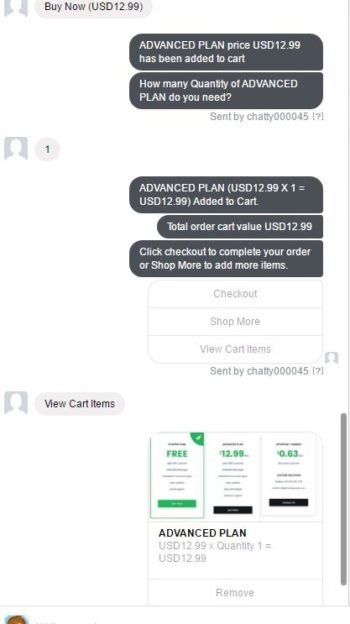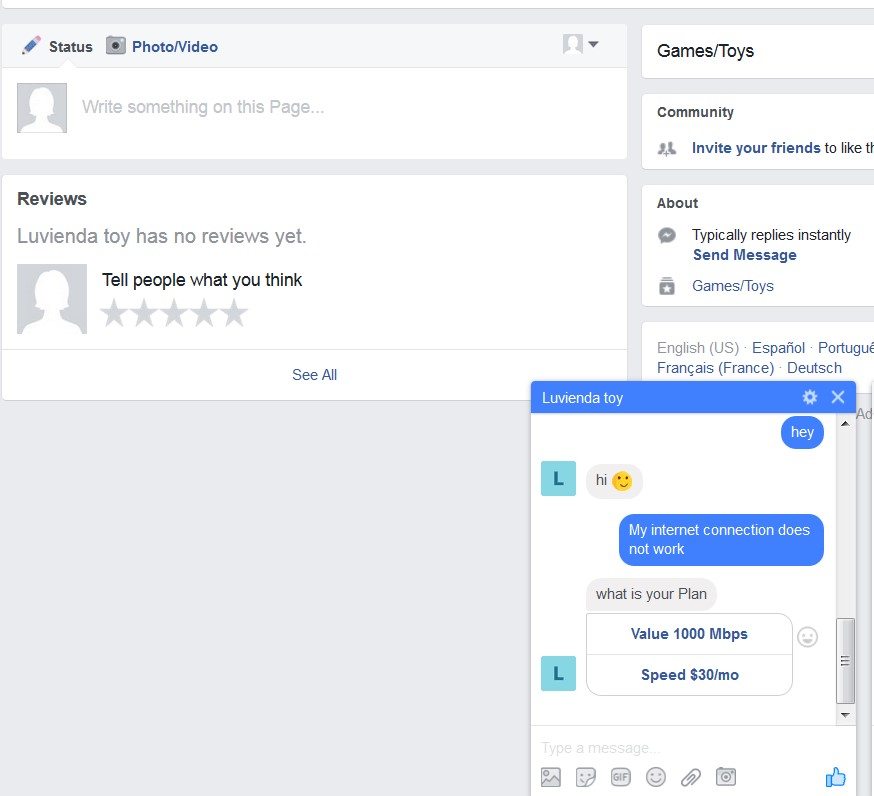As the technological universe continues to launch new disruptors to the current market, companies are jumping in headfirst to make sure they stay ahead of the competition. This year, the quickest growing and most revolutionary technology to reach the industry is the chatbot.
These, often artificial intelligence-powered machines have been around for years; nonetheless, brands have recently learned how to utilize them efficiently for various business functions. The best part is, they’re not just available to big businesses, as chatbot-building solutions make creating your personal chatbot easier than ever. We asked chatbot tool company ChattyPeople, about how little business are using chatbots.
How Small Businesses Are Using Chatbots
To help You Realize how you could benefit from using a chatbot, here are some examples of how small businesses are using them:
Automate Client Support
Among the easiest ways small companies are using chatbots is within their customer care procedures. Chatbots act as the first point of contact to customers, making brands available 24/7. This can give back time to a customer care team, allowing it to focus on other revenue-generating activities.
Streamline Sales
Apart from answering inquiries, chatbots may take orders from clients with easy and quick messaging controls. Instead of creating a phone call or moving on your website, you customer can simply type an order and ship it to your bot. Your chatbot then takes your customer through the ordering procedure.

Influence Purchase Decisions
Imagine if you had enough time to give each customer with whom you socialize your undivided attention? You would probably have happier customers and increased earnings. You can with a chatbot. Chatbots can be used in a more interactive way, like asking consumers about their shopping tastes to provide them personalized information. Simply put, you can produce your chatbot a personal assistant to each and every one of your clients without breaking you more time or money.
Take Upgrades
None of the above are beneficial if your chatbot couldn’t take payments directly from its messaging application. Now you can make a chatbot that integrates with major payment options, letting you monetize your social media profiles and supplying your customers a frictionless shopping experience.
Boost Engagement
Using a useful and functional chatbot on your social networking profiles, you will notice higher engagement levels from the viewers since they will be more likely to visit your pages to make quick purchases and get answers to their inquiries.
Additionally, because your chatbot will gather data about each user, you’ll communicate with them on a more personal level, allowing you to tailor your sales and marketing processes in the future.

5 Cases of Small Businesses Using Chatbots Today
While the above are valid points, the best approach to discover if chatbots are really that invaluable to small businesses would be to take a look at some case studies. Here are 5 examples of small businesses successfully using chatbots now:
1. The Edit
The vinyl record store, The Edit, sold roughly $1 million worth of records within eight months of opening, and experts put this down to its chatbot success. The process is straightforward. Users opt in for text messages in which they get record recommendations, then they respond with a”yes”,”such as”, or”dislike” message. From there, the chatbot amends future guidelines.
If the user answers”yes”, they automatically get a link to the buy page. The customer support team at The Edit can also send additional private messages to affect the user’s purchase choice. This time this past year, the company had already sold more than 50,000 albums through its chatbot.
2. Buoy
It’s no secret that people frequently turn to Google for wellness information. Despite it being helpful for a few, it can also be a dangerous and misleading way to treat symptoms. With that in mind, Andre Le and Eddie Reyes launched Buoy, an electronic health chatbot that works as a medical search engine that offers compassionate advice.
Buoy asks specific questions to each user in order to narrow down the possible list of results and provide more accurate treatment options. The chatbot sources its data from over 18,000 clinical newspapers, spanning over 1,700 conditions.
3. HelloVote
The not-for-profit company, Fight for the Future, has launched its own chatbot called HelloVote to reduce the amount of money spent on campaigns trying to encourage individuals to register to vote. The chatbot works through text message and Facebook Messenger and targets people who are most likely to be active on smartphones.
Users just have to answer a couple of quick questions regarding their title, address, age, citizenship, and this information is added to the individual’s state voter registration database. Covering 50 says, HelloVote retains voter information up-to-date, encourages people to vote, and cuts out the standard paper trail involved with enrolling.
4. Next Insurance Policy
Another example of a small business working with a chatbot in its business procedures is California-based startup Next Insurance. Accessible on Facebook Messenger, the chatbot provides tailored insurance coverages to small businesses via social media, allowing them to find quotes and make purchases.
5. Tune
Tune, a small advertising and marketing technology company based in Seattle has also jumped onto the chatbot bandwagon with its TuneBot. Developed by Slack, TuneBot helps marketers interpret information efficiently. Members of the Tune Multiverse platform may ask questions on Slack regarding their return on investment, sales, campaign analytics, and much more, and data is then sent to them via chat in the form of charts, graphs, and reports.
The concept behind TuneBot is to make gathering information simple, even for those who have little to no experience in data management and analytics. The chatbot can answer complicated questions regarding revenue per impressions and much more.
How to Create a Chatbot for Your Small Company
Thanks to chatbot-building options like Chattypeople, building a chatbot using AI and natural language processing (NLP) is much easier. The platform permits you to create custom solutions for your business in a matter of moments with no coding knowledge at all. Chattypeople is perfect for businesses big and small and can help you:
- Automate interactions with your employees, partners, and clients
- Monetize your Social Networking profiles
- Push personalized offers and promotions, on demand
- Gather data applicable to every individual that uses your own chatbot
Bottom Line
With more and more brands implementing chatbots in their business processes, it is important that you participate now with this growing trend. Use the examples mentioned above to learn about who’d benefit most from using your chatbot then implement one that will add value for your company.

